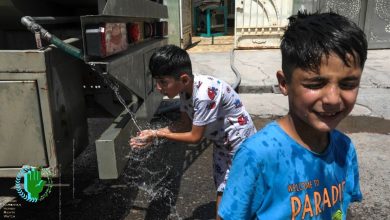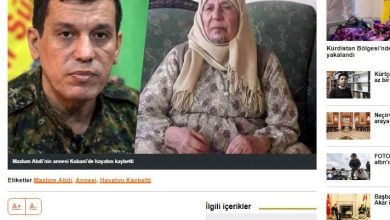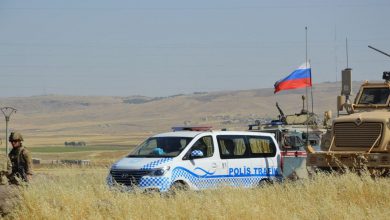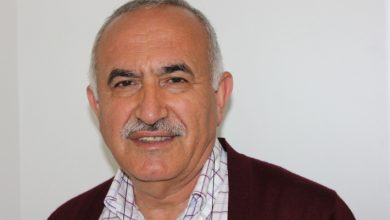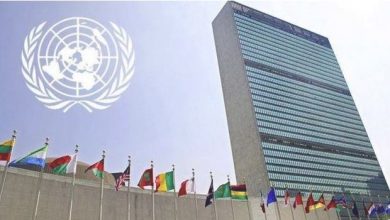For years, the Iranian Kurdistan Human Rights Watch has been meticulously collecting documentation of human rights violations in the Kurdish regions of Iran. Despite submitting hundreds of case files and formal communications to the United Nations and other international bodies, no concrete response has been received. This global silence not only undermines justice but also perpetuates the cycle of violence.
Dr. Zana Sadeqi – Executive Director and Head of International Relations, IKHRW
The Iranian Kurdistan Human Rights Watch began its activities in 2018 with the mission of recording and pursuing human rights violations in the Kurdish regions of Iran. Over these years, the organization has compiled hundreds of documented cases of violence, child soldiery, torture, forced marriage, and the abuse of women and adolescents. This information has been repeatedly communicated to international institutions through extensive correspondence.
Despite these efforts, the outcome has been virtually zero. Neither the United Nations, nor the Office of the High Commissioner for Human Rights (OHCHR), nor UNICEF, nor even organizations that have signed agreements prohibiting child soldiery with armed groups, have taken any effective action. The responses received have been, at best, general and vague, and many communications have gone unanswered.
This silence raises a fundamental question: Is global justice selective and politically driven? Are victims in the Kurdish regions of Iran denied protection and visibility simply because of their geographical affiliation?
Part I: The IKHRW’s Persistent Efforts and Submitted Documentation
The Iranian Kurdistan Human Rights Watch has gathered hundreds of documented cases of human rights abuses in the Kurdish regions of Iran. These files include instances such as luring children into armed groups, severe restrictions on women’s freedom, torture, the exploitation of adolescents in military activities, and deceiving youth with promises of emigration.
All this documentation, along with detailed reports and comprehensive analyses, has been submitted to the UN, the OHCHR, UNICEF, the Human Rights Council, and Geneva Call. The correspondence includes requests for urgent review, legal follow-up, and the establishment of independent monitoring over the activities of armed groups.
Yet, the result has been: No practical or effective response has been received. The replies, in the best-case scenarios, stated that the “issue is not of interest to us” or “is not among our priorities,” which in effect amounts to a complete disregard for victims’ rights.
Part II: The Role of International Institutions and the Contradiction in Performance
International bodies such as the UN, UNICEF, OHCHR, and Geneva Call have a clear mandate to protect human rights and prevent the abuse of children and women. Geneva Call’s agreements with armed groups are specifically intended to prevent child soldiery and ensure adherence to humanitarian principles.
However, an examination of their performance reveals the following:
- There is no genuine enforcement mechanism to monitor adherence to the agreements.
- Armed groups continue their activities without facing legal consequences.
- The agreements are more promotional than operational.
This contradiction suggests that these institutions are practically prioritizing political and publicity concerns over their humanitarian mission.
Part III: Analysis of the International Institutions’ Silence
Several key factors explain this silence:
- Political View of Iran: Kurdish armed groups, which present themselves as the “opposition,” may face less scrutiny due to the political objectives of Western powers.
- Media Tool for Institutions: Some institutions sign agreements purely for the sake of demonstrating good faith rather than committing to genuine action.
- Selective Silence: Victims in the Kurdish regions of Iran are less visible to international bodies because their cases do not align with political priorities.
This global silence, in effect, allows armed groups to continue their activities, leading to a new generation of children and adolescents becoming victims.
Part IV: The Human Consequences of this Indifference
The indifference of international institutions has severe human consequences:
- Children and adolescents are victimized by deception or pressure to participate in armed activities.
- Women fall victim to restrictions on individual liberties, torture, and abuse.
- Deceiving youth with promises of emigration or better opportunities leads to psychological harm, loss of trust in society, and social isolation.
These consequences demonstrate that global silence not only denies justice but also perpetuates the cycle of violence and endangers future generations.
Part V: Moral Responsibility and the Demand for Accountability
The Iranian Kurdistan Human Rights Watch calls on all international institutions to:
- Be accountable for their silence and inaction.
- Establish an independent fact-finding committee to investigate the activities of armed groups in the Kurdish regions of Iran.
- Re-evaluate and genuinely monitor agreements with groups like PJAK and PKK.
- Heed the voices of the victims, not just political or propaganda groups.
Selective justice violates the fundamental principles of human rights and results in the forgetting of genuine victims.
Part VI: Formal Call for a Meeting with UN and Geneva Call Representatives
The Iranian Kurdistan Human Rights Watch, in presenting this report, demands a formal meeting with representatives from the United Nations, the Office of the High Commissioner for Human Rights, UNICEF, and Geneva Call to:
- Present all documented evidence and case files.
- Secure a concrete commitment to monitoring and following up on the actions of armed groups.
- Establish transparent mechanisms for accountability.
This meeting could be a starting point for restoring trust in human rights and preventing the continuation of violations.
The silence of international institutions regarding human rights violations in the Kurdish regions of Iran delays justice and exacerbates human suffering.
The Iranian Kurdistan Human Rights Watch, by providing comprehensive evidence and analysis, once again urges the UN and relevant bodies to:
- Be accountable.
- Make their agreements and activities realistic and monitorable.
- Listen to the voices of the real victims, not just political groups.
As long as international institutions remain indifferent, the slogan of a “world without violence” will remain merely an aspiration, not a reality.
Iranian Kurdistan Human Rights Watch
October 2025


